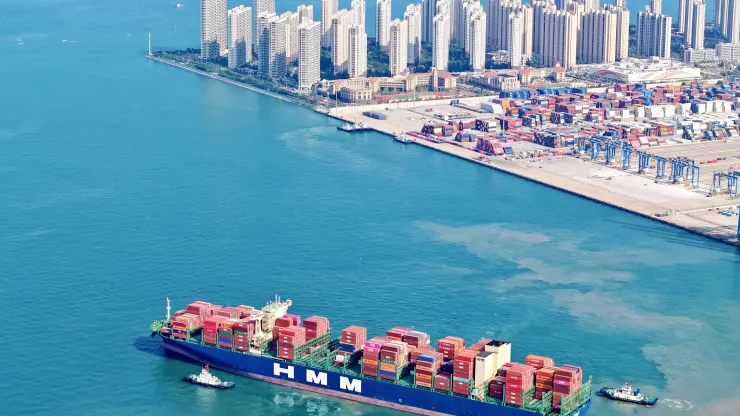Navigating Through Storms: The Red Sea Crisis and Its Impact on Global Shipping Rates
Dive into how the Red Sea crisis has reshaped global shipping rates, with a focus on the latest trends and data from Xeneta. Discover what the future holds for the shipping industry as it navigates through ongoing challenges and maritime threats.

The recent turbulence in the Red Sea has significantly impacted global ocean freight rates, leading to an unprecedented surge in costs for shippers worldwide. Yet, the latest insights from Xeneta, a premier benchmarking platform for ocean and air freight rates, hint at a potential stabilization in this tumultuous market. This analysis draws upon Xeneta's comprehensive cargo data, offering a glimmer of hope for trade routes from Asia to the United States, where rates are showing signs of decline. For further insights, visit Xeneta's official website.
The initial spike, attributed to the Red Sea crisis, saw shipping rates from the Far East to the U.S. soar by an astonishing 146% to 186%, depending on the coast. However, recent data suggests a downtrend, potentially easing the financial strain on U.S. shippers who have been navigating through these choppy waters.
Despite the downturn in pricing, the shadow of maritime threats looms large, with the United Kingdom Maritime Trade Operation reporting recent attacks near Aden, Yemen. Such incidents underscore the ongoing risks faced by global commercial shipping, further detailed in a CNBC report.
In the wake of these challenges, Xeneta's latest findings reveal a slight decline in container rates, suggesting that the peak in spot rates may have been reached. This data, derived from over 400 million crowdsourced points, offers a beacon of hope for U.S. importers, particularly on the East and West Coasts where rates had previously skyrocketed.
Emily Stausbøll, a market analyst at Xeneta, underscores the potential for a market softening in the near term. This shift comes as a welcome respite from the disruptions akin to those experienced during Covid-19, where shipping patterns were drastically altered to bypass the Suez Canal, as detailed in Xeneta's analysis.
The current adjustment in rates could significantly influence the upcoming contract negotiations between ocean freight carriers and U.S. shippers. Despite efforts to maintain elevated rates, the trend suggests a likely continuation of the decline, offering a pivotal moment for trade relations and pricing strategies.
This rate reduction coincides with a dip in demand for Asian manufacturing, amplified by the Lunar New Year's impact on freight volumes. However, as production ramps up post-holiday, the industry may witness fluctuations in pricing, marking a critical period for ocean freight stakeholders.
As we navigate through these uncertain times, the evolving dynamics of ocean freight rates amid geopolitical tensions and seasonal variations present a complex landscape for shippers and carriers alike. The coming weeks will be crucial in shaping the industry's trajectory for the remainder of 2024, highlighting the importance of staying informed and adaptable.
For more insights on how to navigate the complexities of ocean freight and ensure your shipping strategies are resilient against such fluctuations, explore our detailed guides and updates at kiksee magazine.
FAQs
- How has the Red Sea crisis impacted ocean freight rates?
- What signs indicate a potential decline in shipping rates?
- How do maritime threats affect global shipping operations?
- What role does Xeneta play in analyzing freight rates?
- How might the recent changes in shipping rates influence contract negotiations?
- What factors could cause future fluctuations in ocean freight rates?
Conclusion
The Red Sea crisis has undeniably shaken the foundations of global shipping, but the latest trends offer a silver lining. With rates beginning to level off, the industry may soon find its footing amidst ongoing challenges. Stakeholders must remain vigilant, leveraging data and insights to steer through these uncertain waters, ensuring the smooth sailing of global trade.
What's Your Reaction?





















